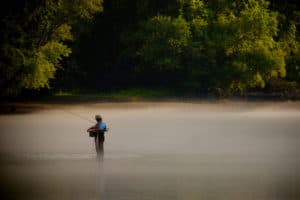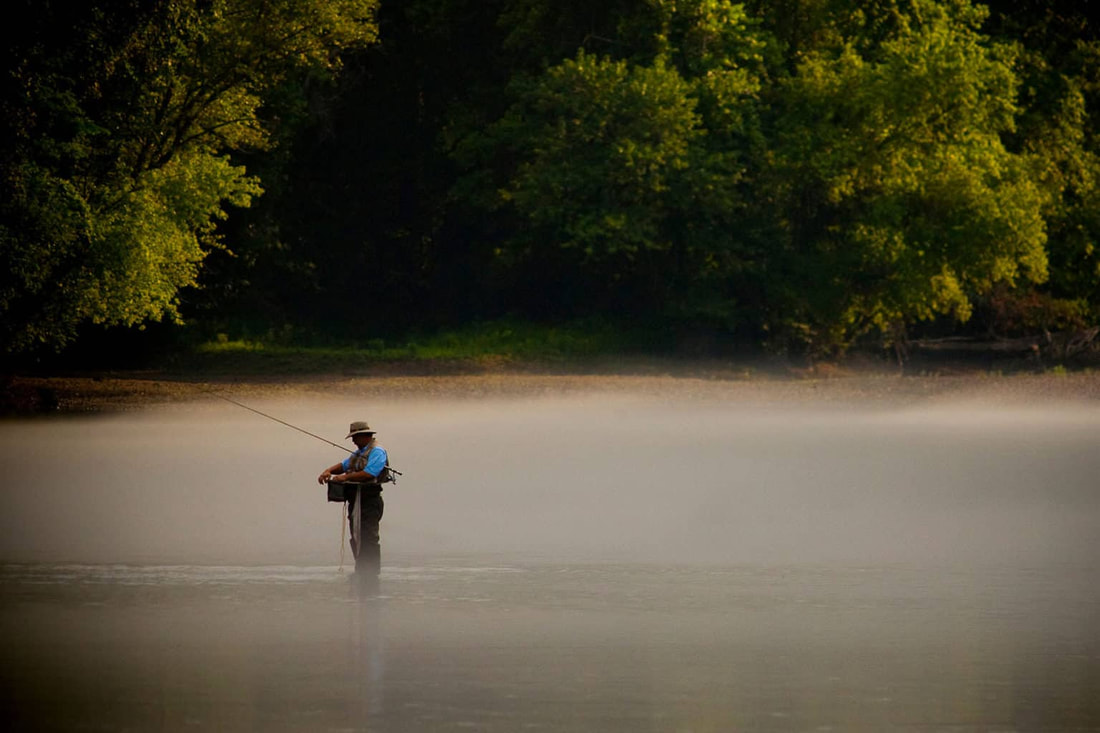By KELLY BOSTIAN
For the CCOF Many hunters and anglers requested a break on prices or free offerings of licenses during the Covid-19 shutdowns in 2020, but the Oklahoma Department of Wildlife Conservation could not oblige. A new bill could change that. The bill, SB744, passed by the Senate Agriculture and Wildlife Committee this week would essentially strike all hunting and fishing license fees from state statutes and allow them to be set by administrative rule through the Oklahoma Wildlife Conservation Commission’s rulemaking process—which still requires legislative and gubernatorial approval. SB744, and corresponding House Bill 2214, co-sponsored by Sen. Casey Murdock, R-Felt and Rep. Kevin McDugle, R-Broken Arrow, directs the Wildlife Department to do something most hunters and anglers probably assume that already does—set licensing fees and issue licenses permits and stamps. But that’s not so. “We had a lot of requests from people last spring for free licenses or discounts because of Covid and we had to tell people we really couldn’t do it, by state statute we couldn’t do it,” said Corey Jager, Wildlife Department legislative liaison. “This bill would allow us to work with the Commission to have special deals, and we would have the ability to come up with options to offer special deals or incentives.” But the origin of the bill dates back at least two years, to a point when numerous license changes were proposed in the legislature and many in the department also were calling for long-overdue changes, she said. In fact a version of the bill passed the House last year the last minutes of the abbreviated Covid-impacted session, but it was not heard in the Senate. The bill and coming changes are guided in large part by a study by Southwick Associates, a Florida-based market research, statistics and economics firm that specializes in outdoors markets and has advised numerous state and federal agencies, Jager said. The idea is to simplify licensing so it’s easier for the public to use, to “right-price” licenses based on the market with plans to adjust fees over time, and to maximize federal aid. The Wildlife Department does not receive funding from taxes collected for the state’s general fund it is independently funded by license fees, federal matching funds and private donations. The state’s annual share of the federal pie, split with other states, depends greatly on the number of licenses or “certified users” on its hunting and fishing license rolls. That means that, in some instances, selling more state licenses at lower cost can actually lead to more income overall with federal matching funds. The department’s youth licenses, all of which are set in statute, with different price offerings for resident and non-resident youths and an out-of-state youth defined as a child 14 or under and resident youth defined as age 16 or under, creates multiple lines of youth license categories. “Youth licenses overall are fairly complicated and that should really be the category we make the easiest,” Jager said. “Users generally can figure out what they need but if someone just asked me what they needed, it gets really complicated really fast.” The department learned some of its licenses are over priced for the market and others are under priced and long overdue for change, she said. The combination hunting/fishing license is over-priced and the state could actually bring in more money with federal matches by reducing that fee, while the price for a lifetime license, with a rate not adjusted for at least 15 years, is behind the times. The Department’s technology also has caught up with the times with a mobile app now available so people can easily purchase licenses online. A survey done by Southwick showed a majority of license holders would be willing to pay more for a 365-day license rather than the standard calendar-year license. “Hunters and anglers could greatly benefit by something they get for 365 days instead of having to renew a license in the middle of a season that continues into January or February,” Jager said. The department can automate reminders for people to update their licenses or people can select an option to automatically renew, she said. The new rules likely will give hunters and anglers a greater voice in the fee structure as well, she said. “For any administrative rule change we go through a 30-day public hearing process so everyone can have a say on them, then they will go to the commission and then to the legislature and then to the governor,” she said. “We put things out there specific to the rule changes where hunters and anglers might be more engaged than they typically are in the legislative proceedings.” Kelly Bostian is a conservation communications professional working with the Conservation Coalition of Oklahoma Foundation, a 501c3 non-profit dedicated to education and outreach on conservation issues facing Oklahomans. To support Kelly’s work please consider making a tax deductible donation at https://oklahomaconservation.org.
0 Comments
Leave a Reply. |
Archives
May 2024
Categories
All
|
Conservation Coalition of Oklahoma
P.O. Box 2751
Oklahoma City, OK 73101
[email protected]



